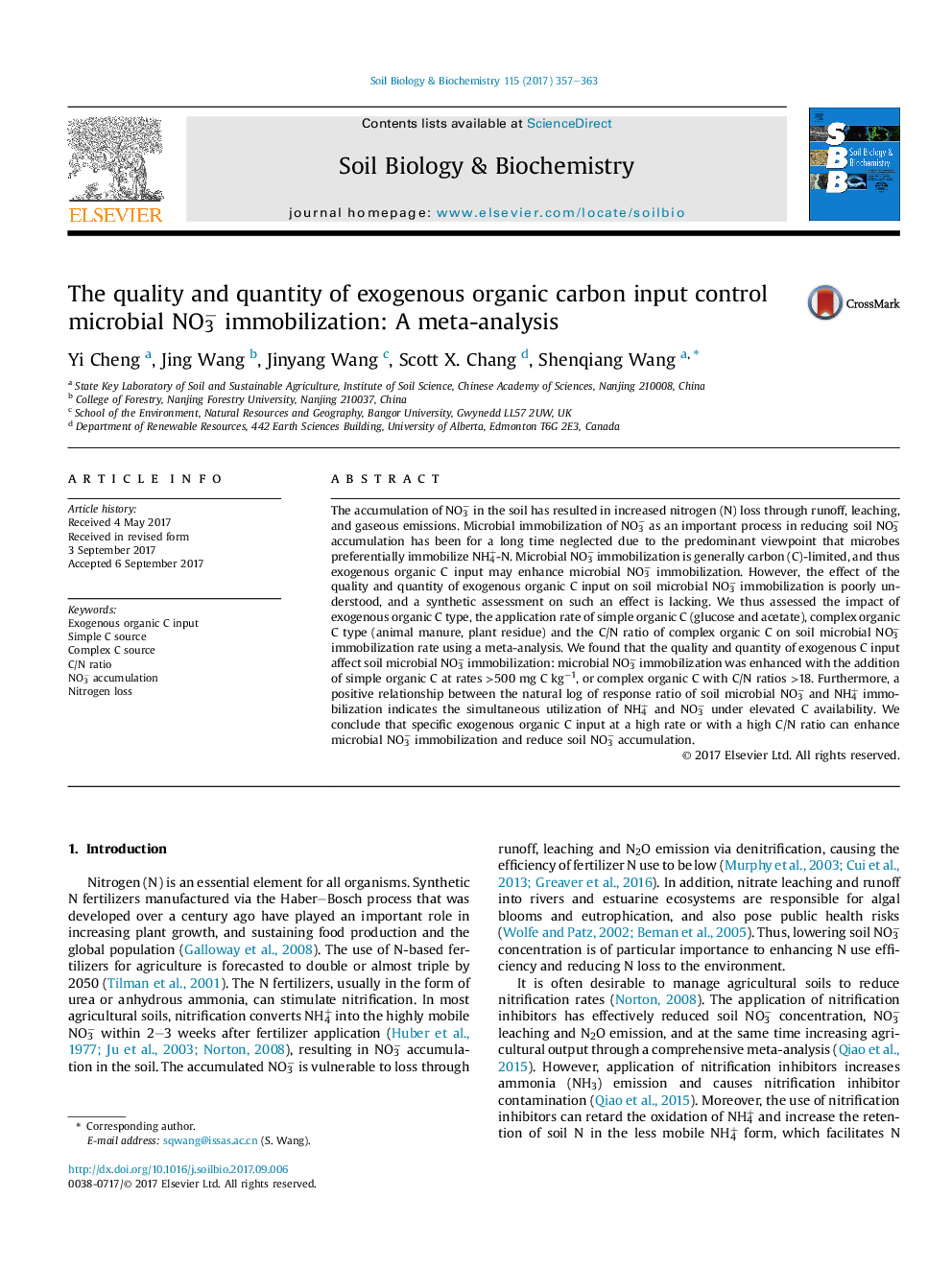| Article ID | Journal | Published Year | Pages | File Type |
|---|---|---|---|---|
| 5516256 | Soil Biology and Biochemistry | 2017 | 7 Pages |
Abstract
The accumulation of NO3â in the soil has resulted in increased nitrogen (N) loss through runoff, leaching, and gaseous emissions. Microbial immobilization of NO3â as an important process in reducing soil NO3â accumulation has been for a long time neglected due to the predominant viewpoint that microbes preferentially immobilize NH4+-N. Microbial NO3â immobilization is generally carbon (C)-limited, and thus exogenous organic C input may enhance microbial NO3â immobilization. However, the effect of the quality and quantity of exogenous organic C input on soil microbial NO3â immobilization is poorly understood, and a synthetic assessment on such an effect is lacking. We thus assessed the impact of exogenous organic C type, the application rate of simple organic C (glucose and acetate), complex organic C type (animal manure, plant residue) and the C/N ratio of complex organic C on soil microbial NO3â immobilization rate using a meta-analysis. We found that the quality and quantity of exogenous C input affect soil microbial NO3â immobilization: microbial NO3â immobilization was enhanced with the addition of simple organic C at rates >500 mg C kgâ1, or complex organic C with C/N ratios >18. Furthermore, a positive relationship between the natural log of response ratio of soil microbial NO3â and NH4+ immobilization indicates the simultaneous utilization of NH4+ and NO3â under elevated C availability. We conclude that specific exogenous organic C input at a high rate or with a high C/N ratio can enhance microbial NO3â immobilization and reduce soil NO3â accumulation.
Keywords
Related Topics
Life Sciences
Agricultural and Biological Sciences
Soil Science
Authors
Yi Cheng, Jing Wang, Jinyang Wang, Scott X. Chang, Shenqiang Wang,
